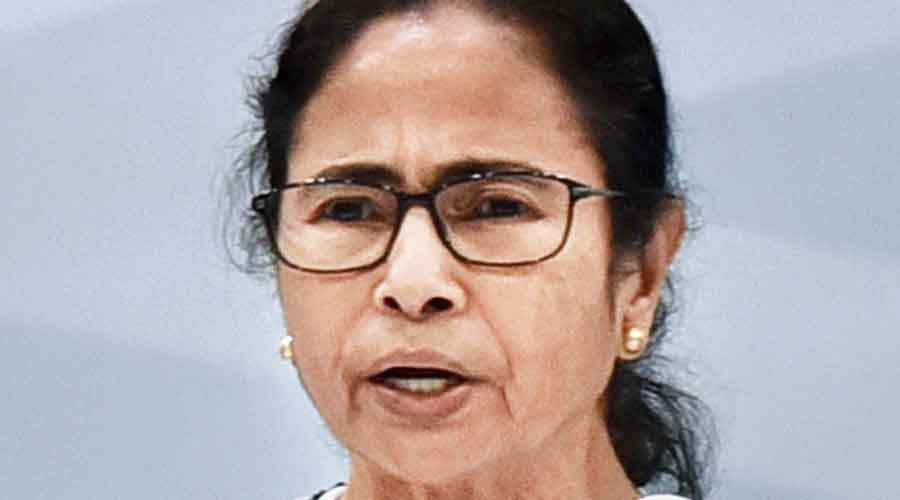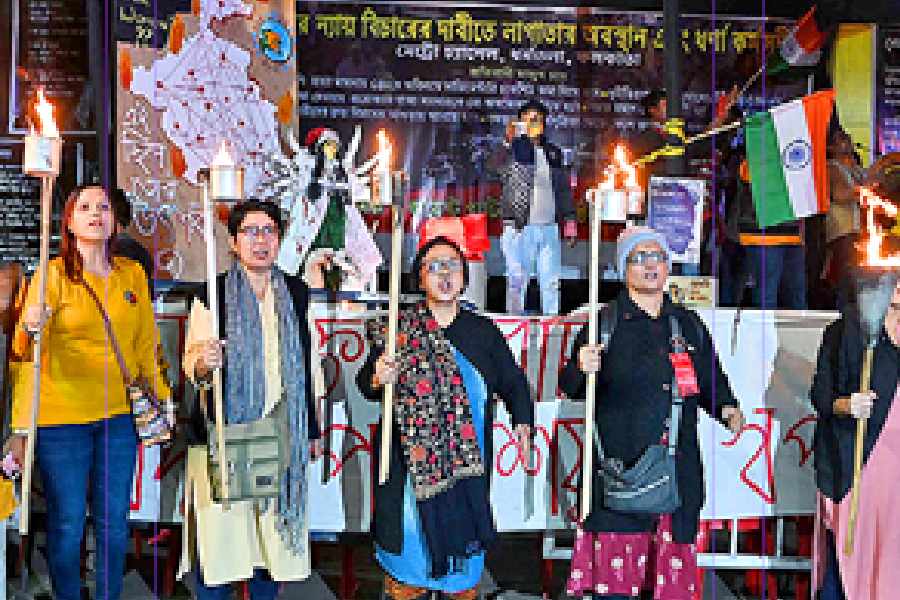The Bengal Assembly on Tuesday sanctioned the resurrection, after 52 years, the state’s legislative council or Vidhan Parishad with a vote of 196:69 (nearly three-fourths of the 265 members present), in keeping with chief minister Mamata Banerjee’s pre-poll commitment.
Bengal’s Vidhan Parishad was formed in June 1952, with 51 members, but was abolished in March 1969.
Mamata has, since coming to power in 2011, been in favour of the Parishad’s revival. Before the 2021 Assembly polls, the Trinamul chief said her government would bring back the Upper House, should it win a third term.. After the landslide mandate in her favour, the state cabinet green-lit the process in May.
However, bringing the bicameral legislature back to life in Bengal involves a fairly long road ahead.
The motion will now be sent to Delhi, following governor Jagdeep Dhankhar’s approval. There, it would be considered by the Union law ministry, under Ravi Shankhar Prasad, and sent for consideration and passing by both Houses of the Parliament. Should it clear those steps, it would need President Ram Nath Kovind’s signature.
The BJP’s Bengal unit has made it clear that the party is opposed to the return of the Parishad in Bengal and the proposal would be voted out by the BJP’s brute majority in the Lok Sabha.
Trinamul has argued that it is a constitutional provision (Article 169 of the Constitution), and of the six states in the country that still have such a council, that is, Andhra Pradesh, Telangana, Karnataka, Maharashtra, Bihar and Uttar Pradesh, three are BJP or NDA-ruled.
“They aren’t opposed to the existence of the Upper House in Karnataka, Bihar and Uttar Pradesh, but here, they are talking about burden on the exchequer and whatnot,” said parliamentary affairs minister Partha Chatterjee later, referring to claims by leader of the Opposition Suvendu Adhikari that resurrection of the Parishad would mean an extra burden of Rs 600-800 crore over five years.
“How do they know that? It hasn’t been decided yet if the Parishad would be a 40-seat (stipulated minimum) or a 98-seat (stipulated maximum of a third of the 294-seat Assembly) House,” said Chatterjee. “We found his (Adhikari’s) boasts of his party’s Lok Sabha majority and how it (the motion) would be terminated there in poor taste.” He added the BJP was trying to bulldoze the “very federal form of the Constitution”.
To become a member of the Parishad, a citizen of India must be at least 30, of sound mind, not an insolvent, and enrolled as a voter of state. Somebody who is an MP or an MLA cannot simultaneously be a member of the Parishad. The members of the legislative council – MLCs – occupy seats for six years, with a third of the total strength of the Parishad retiring every two years.
Adhikari, a Trinamul turncoat, insisted that it was being done by the state government to ensure “backdoor entry” to the legislature for those who lost the Assembly election, including Mamata, and her “loyalists” in civil society.
Chatterjee rubbished it, accusing Adhikari of “losing his mind, under tremendous pressure”, adding Mamata would contest the Assembly bypolls from Bhowanipore. Bypolls remain pending for Khardah, Gosaba, Samserganj, Jangipur, Dinhata and Santipur, besides Bhowanipore.
Sources in the treasury benches said the ruling party would like to reward some veterans who were denied Assembly tickets this time with Parishad memberships, but there was no plan to bring only “loyalists” from civil society. “She (Mamata) also plans to bring several respected leaders of the Left and the Congress, who were reduced to zero seats for the first time since Independence,” said a Trinamul leader.
The CPM and the Congress have, so far, been opposed to the idea. The lone Sanyukta Morcha (an alliance of the Left, the Congress, and the ISF) member in the Assembly, ISF leader Nawsad Siddique, opposed it on Tuesday.
A Trinamul vice-president said it was becoming increasingly clear that the BJP had chosen disruptive practices as their principal strategy. “Earlier in the day, Suvendu Adhikari and team created ruckus in the House as the Speaker (Biman Banerjee) urged him not to keep referring to the Nandigram election result, as it is sub judice now. They staged a walkout and accused the Speaker of being partisan,” he said.
During the discussion on the governor’s address, a belligerent Mamata raised questions on the neutrality of the Election Commission of India on the floor of the House and asserted that without the commission’s alleged help to the BJP, it would not have secured even 30 seats in the election. “Without the Election Commission’s support, the BJP would not have even won 30 seats…. Whatever (Narendra) Modi and (Amit) Shah wanted was done by them (the commission),” said the chief minister.










